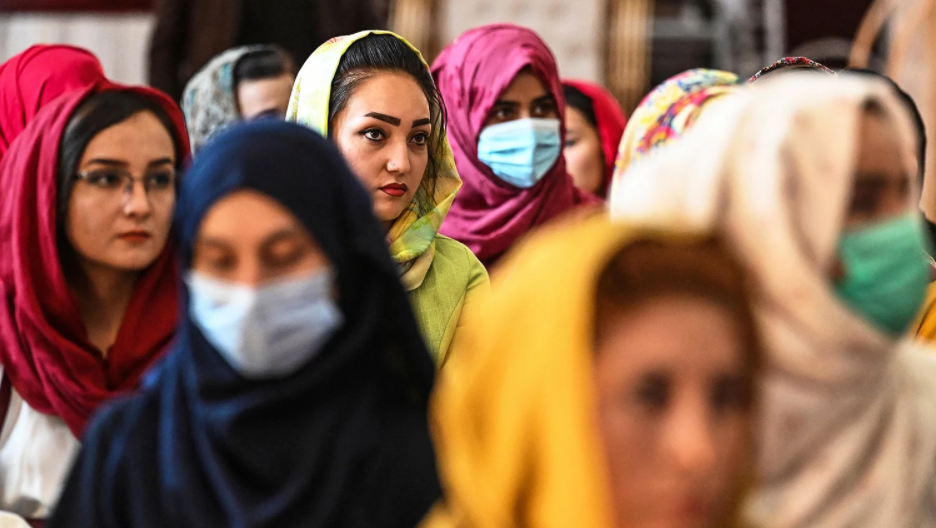Generation Black TV - Live
The Teachers Risking Everything to Educate Young Afghan Women
The Teachers Risking Everything to Educate Young Afghan Women
[simple-author-box]

When I was at school or studying at university, my alarm would go off at 7 o’clock and I would lie there thinking ‘I’m far too tired, I can’t be bothered with this.’ I had many mornings like that and at the time I never even considered what a privilege it was to be able to attend classes and get an education.
Now, at twenty-four years old, with a degree and job I love, I am so grateful for the opportunities I received. However, this is not a right that is afforded to everyone, even in the twenty-first century.
Twenty years after their dismissal by U.S troops, fundamentalist group, The Taliban, have regained control of Afghanistan, heightening concerns of the abuse of basic human rights, particularly of girls.
Just three months after the Taliban returned to power in Afghanistan, girls haven’t been allowed in public school beyond sixth grade in Kabul and other cities.
The Taliban’s severe treatment of women throughout the 1990s made Afghanistan famous on a global scale for all the wrong reasons. If harsh rules such as banning girls from education and jobs, strict dress codes and not speaking loudly in public were broken, it resulted in being beaten and detained.
Compared to their rule in the 1990s, The Taliban appear to have a slightly less totalitarian attitude towards gender segregation, with officials saying that schools for older girls will reopen in Kabul and elsewhere once appropriate arrangements are made but many are sceptical of these promises.
In response to these restrictions, a number of educators in Afghanistan are now holding secret classes for teenage girls, creating a space for their education.
In the 1990s, Fawzia, a mother of five, tutored her eldest daughter and other children at home. She is now one of many teachers holding these secret classes, telling The Wall Street Journal, “If they just sit at home they will get depressed or addicted to their phones… We need to give them hope that one day schools will reopen.”
Fawzia’s daughter told TWSJ, “When the Taliban first came 20 years ago, the level of education in the country was very low. Many women were satisfied with basic literacy classes. Now, the education level is high… but small classes like this can’t fix the problem… Schools must reopen.”
Nasser, a headmaster of a school in western Kabul explains that he initially stuck to the rules: No girls beyond sixth grade but after hoping that the Taliban were too busy to notice if older girls attended classes, Nasser let families with older daughters know that their children could return.
He told TWSJ, “If the Taliban find out what I am doing, they will punish me severely. But I take responsibility for my actions… I have no fear. I want girls to continue their studies.”
It’s not just teachers in Afghanistan that are fighting for the rights of young women, as people across the world are drawing attention to the fight for women’s education. One of these people is British Armed Forces veteran Mark Hill, who has created a virtual learning tool called the Afghan Buddy Box, which is now helping to educate young girls in Afghanistan in response to The Taliban rule.
Mark tells the BBC, “It’s making a difference. It’s changing people’s lives. Through the power of the internet, it’s gone everywhere and it’s been fantastic.”
Yesterday the BBC released their list for 100 Women 2021, with half of this year’s list comprised of women from Afghanistan. As part of the series, four women leaders exchanged letters with four women from Afghanistan who share similar interests or passions. Nobel Peace Prize laureate Malala Yousafzai, who was shot in the head by The Taliban in 2012 for speaking up for the education rights of women, exchanged letters with a 17-year-old girl.
In her letter, Malala tells the girl “I know what it’s like to not know what tomorrow will bring, to fear never returning to a classroom… As I fight for education and equality each day, I will think of you… All I ask of you, is to never lose faith in yourself. Believe in your voice. You are capable of anything.”
With only 40% of Afghan girls completing primary school compared to 70% of boys, it will be interesting to see if The Taliban sticks to their promises but in the meantime, there will always be courageous teachers – named and unnamed, risking everything in the fight for women’s rights to an education.

